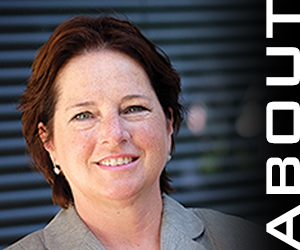Inside Fraud | Winter 2015
The Art of the Interview
Interviews during fraud investigations take more than asking someone a long list of questions.

Theresa Mack
Cendrowski Corporate Advisors
News From the World of Forensic Accounting
Interviewing when done right offers a multifaceted view of an individual; it's a unique opportunity to determine whether the person in front of you is telling the truth, and to gather additional, vital facts or evidence.
It’s been said that the success of a fraud investigation interview rests on the skills of the interviewer and their level of preparation. Given that, here are just a few of the things you should consider before stepping into the interview room.
1. Personal Space
Adept interviewers use spatial orientation as a form of non-verbal communication. The closer the proximity of the interviewer to the interviewee, the more personal the perception of the questioning. Generally, 1.5 to 4.5 feet is considered the “personal zone,” and chairs should be placed accordingly with no desk or other obstacle in between.
2. Interview Site
The location should be convenient for both parties, while being absolutely private. A borrowed office or conference room is ideal. Whenever possible, avoid holding the interview in the subject’s home. One’s home is private and holds a multitude of distractions; it also puts the interviewee on his or her “own turf.” That translates to a feeling of comfort and control that may hamper you.
3. Distractions
Remove any attention pullers such as family photos, clocks and phones. Close the blinds to reduce distractions and maintain privacy. Remove heavy and/or sharp objects (from a safety perspective), knickknacks and irrelevant documents and clutter.
4. Comfort Level
While privacy is uppermost, you must ensure the interviewee doesn’t feel isolated. If he or she asks to leave the interview, they always should be allowed to do so.
5. Participants
The interview should involve only three individuals: The interviewer, the interviewee and a witness, who may provide testimony down the road. A lower-level associate is ideal; it’s best to avoid a superior, or anyone who could be perceived as having an intimidating influence over you. This witness will take notes but won’t engage in the interview. He or she should sit at a distance and serve as the room’s eyes and ears.
6. The Human Element
Actively building rapport with the interviewee is the most important step. Bond with them by sharing similar experiences—tell a story about yourself, express your own feelings about the interview process and, if the situation warrants it, acknowledge the power of temptation and the weaknesses within us all. Let the interviewee know you care and aren’t there to judge.
7. Strategic Questioning
You’ll ask questions that answer the “5 Ws”: Who, What, Where, When and Why. Reassure the interviewee that the interview is confidential. If treated with dignity and given confidence their information won’t be wantonly shared, interviewees are more likely to be honest and thorough with their answers. “Treat others as you wish to be treated,” is the motto to live by.
Fraud investigations are precarious things. You need to prepare for interviews, understand the psychology behind them, and tread with purpose and care to get at the truth.
About Theresa Mack:
Theresa Mack, CPA, CFF, CAMS, PI, is a senior manager with Cendrowski Corporate Advisors. She has more than 25 years of experience uncovering and investigating white collar crime. Theresa is a licensed Private Investigator, Anti-Money Laundering Specialist, and former FBI Special Agent.